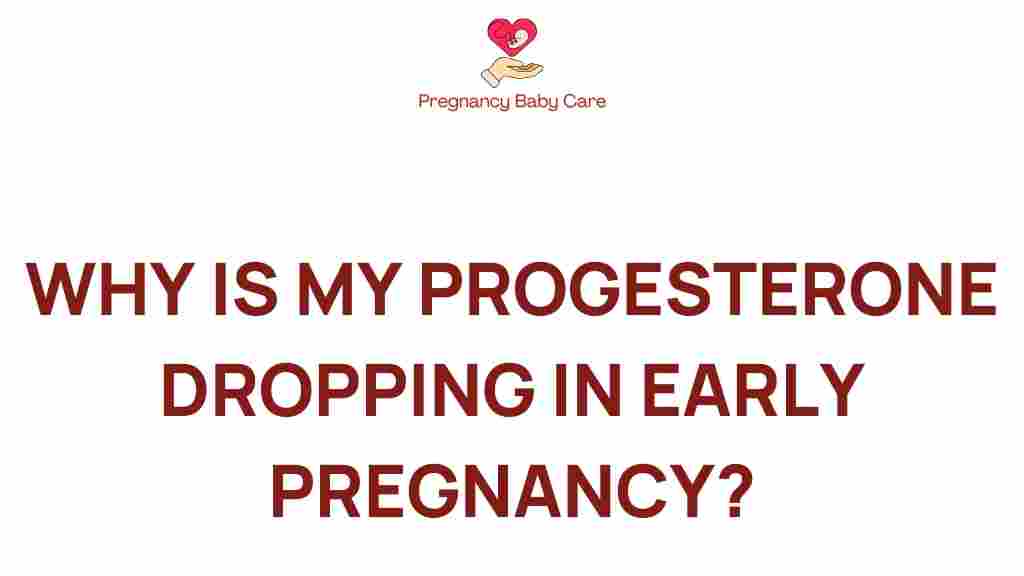Understanding the Mystery of Dropping Progesterone in Early Pregnancy
Pregnancy is a profoundly intricate journey that involves numerous hormonal changes. Among these hormones, progesterone plays a critical role, especially in early pregnancy. Understanding the dynamics of progesterone levels can provide insight into maternal health, fertility, and pregnancy complications. In this article, we will delve into the significance of progesterone, what it means when levels drop, and how this impacts early pregnancy.
What is Progesterone?
Progesterone is a steroid hormone produced primarily by the ovaries and the placenta during pregnancy. Its primary functions include:
- Preparing the uterine lining for implantation.
- Maintaining the uterine environment during pregnancy.
- Regulating the menstrual cycle.
- Supporting fetal development.
The Role of Progesterone in Early Pregnancy
During early pregnancy, progesterone levels rise significantly. This increase is essential for:
- Preventing uterine contractions that could lead to miscarriage.
- Supporting the development of the placenta.
- Facilitating the nutritional needs of the embryo.
In fact, progesterone is often referred to as the “pregnancy hormone” because of its vital contributions to maintaining a healthy pregnancy.
Why Does Progesterone Drop in Early Pregnancy?
A drop in progesterone levels can be alarming for expecting mothers, as it may signal potential complications. Here are some common reasons for declining progesterone levels during early pregnancy:
1. Hormonal Imbalances
Hormonal changes are a natural part of pregnancy. However, in some cases, the body may not produce enough progesterone due to various factors, including:
- Ovarian dysfunction.
- Issues with the corpus luteum, which produces progesterone after ovulation.
- Chronic stress, which can affect hormonal balance.
2. Ectopic Pregnancy
In some cases, a fertilized egg implants outside the uterus, often in a fallopian tube. This condition, known as an ectopic pregnancy, can lead to lower progesterone levels. Ectopic pregnancies are serious and require immediate medical attention.
3. Miscarriage
A decline in progesterone levels can be one of the early signs of a miscarriage. If the body senses that the pregnancy is not viable, progesterone production may decrease, leading to symptoms such as spotting or bleeding.
4. Genetic Factors
Some women may have a genetic predisposition to lower progesterone levels, which can impact their pregnancies. Women with a history of hormonal issues may be at a higher risk of experiencing progesterone fluctuations.
5. Lifestyle Factors
Several lifestyle choices can influence progesterone levels, including:
- Poor diet lacking in essential nutrients.
- Lack of exercise.
- Smoking and alcohol consumption.
Recognizing Symptoms of Low Progesterone in Early Pregnancy
Women in early pregnancy should be aware of the symptoms that may indicate low progesterone levels. These include:
- Spotting or bleeding.
- Abdominal cramping.
- Fatigue and mood swings.
- Breast tenderness or changes.
If you experience any of these symptoms, it is crucial to consult your healthcare provider for evaluation and possible intervention.
How is Progesterone Monitored During Early Pregnancy?
Monitoring progesterone levels in early pregnancy typically involves blood tests. Here’s how the process works:
- Your healthcare provider may request blood tests to measure hormone levels, especially if there are concerns about your pregnancy.
- Testing is usually done at specific intervals to track changes in progesterone levels.
- Results will help determine whether any interventions are necessary to support the pregnancy.
What Can Be Done to Address Low Progesterone Levels?
If you are diagnosed with low progesterone levels during early pregnancy, there are several options available:
1. Hormonal Supplementation
Your doctor may prescribe progesterone supplements to help stabilize hormone levels. These supplements can come in various forms, including:
- Oral tablets.
- Vaginal suppositories.
- Injectable forms.
2. Lifestyle Modifications
Improving your overall health can also positively impact progesterone levels. Consider the following lifestyle changes:
- Eat a balanced diet rich in fruits, vegetables, whole grains, and healthy fats.
- Incorporate regular physical activity into your routine.
- Avoid smoking and limit alcohol intake.
3. Stress Management
Stress can significantly affect hormonal balance. Implementing stress-reduction techniques such as yoga, meditation, or deep-breathing exercises can help maintain healthy progesterone levels.
Potential Pregnancy Complications Related to Low Progesterone
Low progesterone levels in early pregnancy can lead to various complications, including:
1. Increased Risk of Miscarriage
As mentioned earlier, one of the most concerning complications of low progesterone is an increased risk of miscarriage. Maintaining stable progesterone levels is vital for sustaining early pregnancy.
2. Ectopic Pregnancy
An ectopic pregnancy is another serious complication associated with low progesterone. If detected late, it can lead to severe health risks for the mother.
3. Preterm Labor
In later stages of pregnancy, low progesterone levels can contribute to preterm labor, which poses risks to the health of both the mother and the baby.
The Importance of Prenatal Care for Maternal Health
Regular prenatal care is crucial for monitoring hormonal changes and ensuring maternal health during pregnancy. Here’s how it can help:
- Routine check-ups allow for the early detection of hormonal imbalances.
- Healthcare providers can offer personalized advice and treatment options.
- Regular monitoring helps manage any potential complications early on.
For more information on prenatal care and its significance, visit CDC Prenatal Care Guidelines.
Conclusion
Understanding the mystery of dropping progesterone in early pregnancy is essential for women’s health and fertility. By acknowledging the importance of this hormone and recognizing the signs of low levels, women can take proactive steps toward maintaining a healthy pregnancy. Regular prenatal care, lifestyle modifications, and prompt medical attention can significantly improve outcomes for both mothers and their babies. Always consult with your healthcare provider if you have concerns about your progesterone levels or any symptoms during early pregnancy.
For additional support and information on women’s health, visit Women’s Health Resources.
This article is in the category Pregnancy and created by PregnancyBabyCare Team
